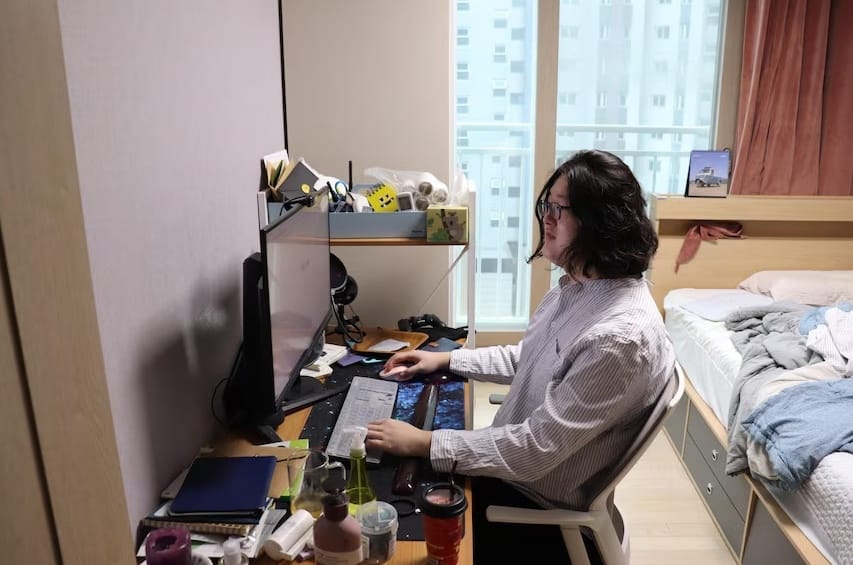South Korea's Silent Epidemic: The "Hikikomori" Youth Recluse Phenomenon
The term "hikikomori" was first used in Japan in the 1990s to describe a growing number of young people who had retreated into their bedrooms, rarely leaving the house. In South Korea, the phenomenon has gained attention more recently, as the number of affected individuals has surged.

In a small, darkened room in Seoul, 27-year-old Jae-sung spends his days in front of a glowing computer screen, immersed in the virtual world of online gaming. He rarely ventures outside, subsisting on instant noodles and snacks delivered to his door. Jae-sung is one of an estimated 320,000 young South Koreans who have withdrawn from society, a phenomenon known as "hikikomori." Hikikomori, a term first coined in Japan, refers to individuals who isolate themselves in their homes for months or even years, cutting off most social contact. As the hikikomori population grows in South Korea, experts are sounding the alarm about the long-term consequences for individuals, families, and society as a whole.
The term "hikikomori" was first used in Japan in the 1990s to describe a growing number of young people who had retreated into their bedrooms, rarely leaving the house. In South Korea, the phenomenon has gained attention more recently, as the number of affected individuals has surged. Hikikomori is typically defined as a period of social withdrawal lasting at least six months, with individuals often confining themselves to a single room. While the phenomenon was initially associated with young males, an increasing number of women and older individuals are now being identified as hikikomori. The exact prevalence is difficult to determine, as many cases go unreported due to social stigma and lack of awareness.
The reasons behind the growing hikikomori phenomenon in South Korea are complex and multifaceted. Experts point to the country's highly competitive and stressful academic environment, where students face immense pressure to succeed from an early age. The intense focus on academic achievement, often at the expense of social and emotional development, can leave young people ill-equipped to handle the challenges of adulthood. Economic uncertainty and a lack of stable job opportunities have also contributed to a sense of hopelessness and disillusionment among youth. The proliferation of digital technologies, including online gaming and social media, has provided an escape from the pressures of the real world, but has also exacerbated social isolation and withdrawal.
In one neighborhood in Seoul, a group of volunteers conducts regular door-to-door visits to check on the well-being of reclusive residents.
For Jae-sung, the path to becoming hikikomori began in high school, when he struggled to keep up with the demanding curriculum and expectations of his parents and teachers. "I felt like a failure," he recalls. "I couldn't see a future for myself." After graduating, Jae-sung briefly attended university, but dropped out after a few months, unable to cope with the social and academic pressures. He retreated to his childhood bedroom, where he found solace in online gaming and anime. As the months turned into years, Jae-sung's social skills deteriorated, and he became increasingly anxious at the thought of interacting with others.
The mental health consequences of prolonged social isolation can be severe. Hikikomori individuals are at high risk for depression, anxiety, and other mental health disorders. The lack of regular social interaction and physical activity can disrupt sleep patterns and circadian rhythms, leading to further emotional distress. In extreme cases, hikikomori may turn to self-harm or even suicide. The longer an individual remains in a state of social withdrawal, the more difficult it becomes to reintegrate into society, leading to a vicious cycle of isolation and despair.
For families of hikikomori individuals, the emotional and financial toll can be devastating. Parents often experience a profound sense of shame and self-blame, wondering where they went wrong in raising their child. Siblings may feel neglected or resentful, as the hikikomori individual becomes the focus of the family's attention and resources. The financial burden of supporting an unproductive adult child can strain even middle-class families, as hikikomori individuals are often unable to hold down a job or contribute to household expenses. The social stigma surrounding hikikomori can lead to further isolation and ostracization of the entire family.